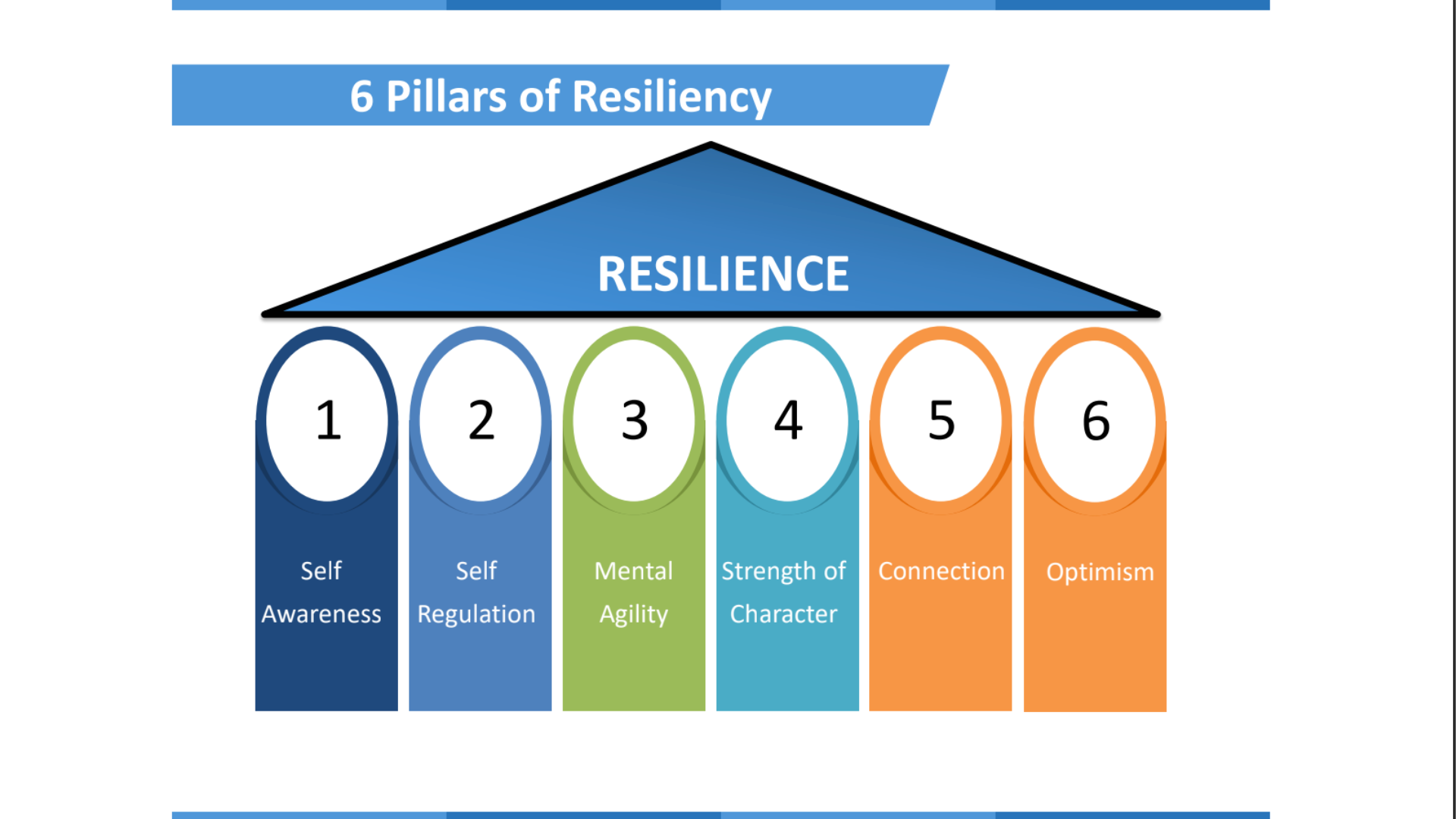The 6 Pillars of Resilience:
How to Strengthen Them for Personal and Professional Growth


Resilience is more than just the ability to recover from setbacks; it’s a dynamic skillset that can be developed and refined. At the core of resilience are six fundamental traits. Understanding and nurturing these pillars can lead to significant growth in both your personal and professional life. Let’s explore why these traits are essential and how you can boost each one to your advantage.
Why It’s Important: Self-awareness is the cornerstone of personal growth. It involves recognizing your emotions, thoughts, and behaviors, and understanding how they impact your decisions and interactions with others. In both personal and professional settings, self-awareness allows you to make conscious choices that align with your values and goals.
How to Boost It:
Why It’s Important: Self-regulation is the ability to manage your emotions, thoughts, and behaviors in different situations. It enables you to stay calm under pressure, control impulsive reactions, and respond thoughtfully rather than reactively.
How to Boost It:
Why It’s Important: Mental agility is the ability to think flexibly, adapt to new situations, and see challenges from multiple perspectives. It helps you navigate complex problems, make quick decisions, and innovate in the face of change.
How to Boost It:
Why It’s Important: Strength of character involves integrity, perseverance, and the courage to stand by your principles, even in difficult circumstances. It’s what drives you to do the right thing, even when it’s not the easy thing.
How to Boost It:
Why It’s Important: Human connection is a fundamental pillar of resilience. Building and maintaining strong relationships provides emotional support, enhances collaboration, and fosters a sense of belonging, all of which are vital for both personal and professional resilience.
How to Boost It:
Why It’s Important: Optimism is the ability to maintain a positive outlook and focus on the potential for positive outcomes, even in challenging situations. It fuels resilience by helping you stay motivated and persistent, and by reducing the impact of stress.
How to Boost It:
Resilience is not just about surviving tough times—it’s about thriving in the face of adversity. By strengthening these six pillars of resilience you can enhance your ability to navigate life’s challenges with grace and determination.
At The Resiliency Solution, we believe in empowering individuals to build these traits for success in both their personal and professional lives. By consciously cultivating these pillars, you can create a solid foundation of resilience that will support you through whatever life throws your way.